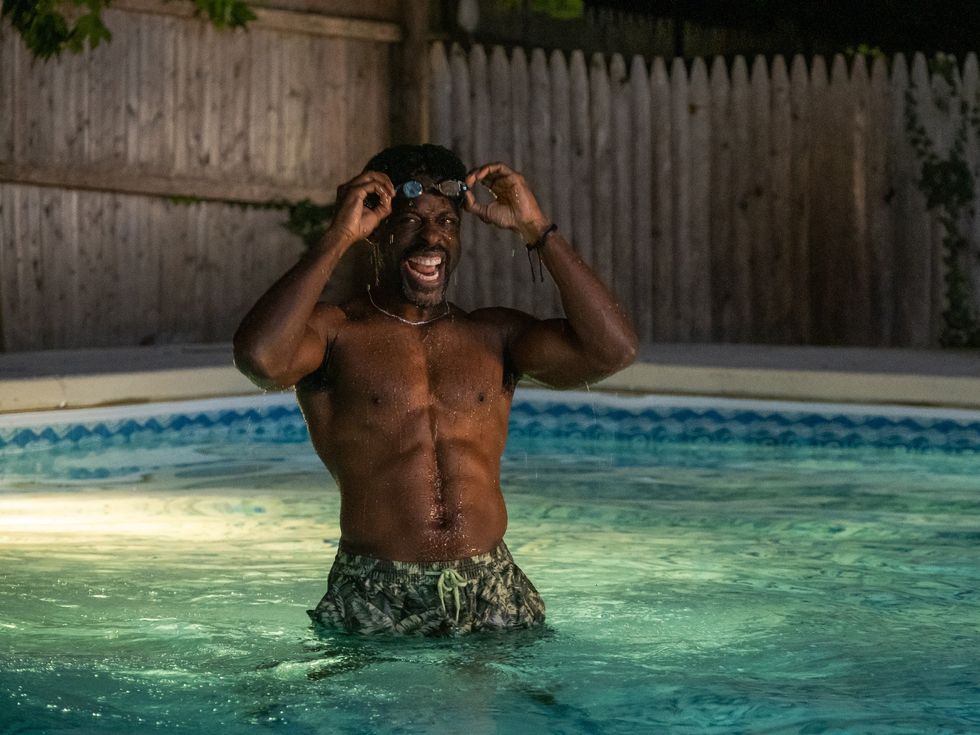Movie Review
Satirical American Fiction takes aim at Black stereotypes in media
In 1987, writer/director Robert Townsend released Hollywood Shuffle, a satire that confronted the racial stereotypes of Black people in movies and TV. Thirteen years later, writer/director Spike Lee made a similar film with Bamboozled, going even further in his critiques of the industry. Twenty-three years after that, it’s clear that, despite some advances, the issue still remains, as writer/director Cord Jefferson has chosen to tackle a story that echoes those two films with his debut, American Fiction.
Theolonious “Monk” Ellison (Jeffrey Wright) is a professor/author. Soon after the film starts, he is put on mandatory leave after a confrontation with a student about him using the N-word as part of a classroom book discussion. His frustration increases when he attends a book festival where another Black author, Sintara Golden (Issa Rae), is being praised for writing a book full of racial stereotypes called We’s Lives in the Ghetto.
Unable to sell a book he’s written on its own merits, he decides to write his own stereotype-riddled book that he calls My Pafology under the pseudonym of Stagg R. Leigh. Naturally, it’s quickly picked up by eager (white) publishers and becomes a sensation, despite his many attempts to derail the process along the way. Complicating matters is a need for more money to take care of his ailing mother (Leslie Uggams), as well as a budding relationship with Coraline (Erika Alexander), neither of whom he tells about the joke book that has spiraled out of his control.
The film – which is based on a book called Erasure by Percival Everett, an English professor at the University of Southern California – offers up a variety of over-the-top satirical moments. Almost all the white people in the film are portrayed as oblivious, allies who have no real understanding of cultural diversity. A bookstore puts Monk’s previous works under “African American Studies” simply because he’s Black, not because of their content. A glimpse at a movie channel celebrating “Black Diversity Month” features an ad filled only with movies about gang violence or slavery.
At the same time, however, Jefferson attempts to tell a heartfelt family story, as Monk deals with a mother with dementia, his ne’er-do-well brother Clifford (Sterling K. Brown), and an unexpected circumstance with his sister Lisa (Tracee Ellis Ross). Add in the romance with Coraline, and it’s a lot to ask of audiences to invest in each part equally.
Somehow, though, Jefferson is able to combine the disparate parts together by giving each their own proper showcase. It also helps that even though the satirical sections are heightened, they never lose touch with a recognizable reality. With pointed lines like “White people think they want the truth, but they don’t. They just want to feel absolved,” the film will have viewers rethinking how they view any Black story put on screen.
Wright is the perfect actor to portray Monk, as he’s well-known enough to be a great leading man, but not so much of a star for his fame to override the nuances of the role. He’s also able to balance out the extremes of the character in a way that makes him believable. He’s supported by a host of talented actors that include those already mentioned as well as John Ortiz, Adam Brody, Keith David, and more.
American Fiction is a hilarious film that also manages to be one of the most thought-provoking ones of the year. The fact that Jefferson felt a story like his needed to be told 36 years after Townsend’s groundbreaking film shows how far the industry has come and how far it still needs to go.
---
American Fiction opens in select theaters on January 5.



